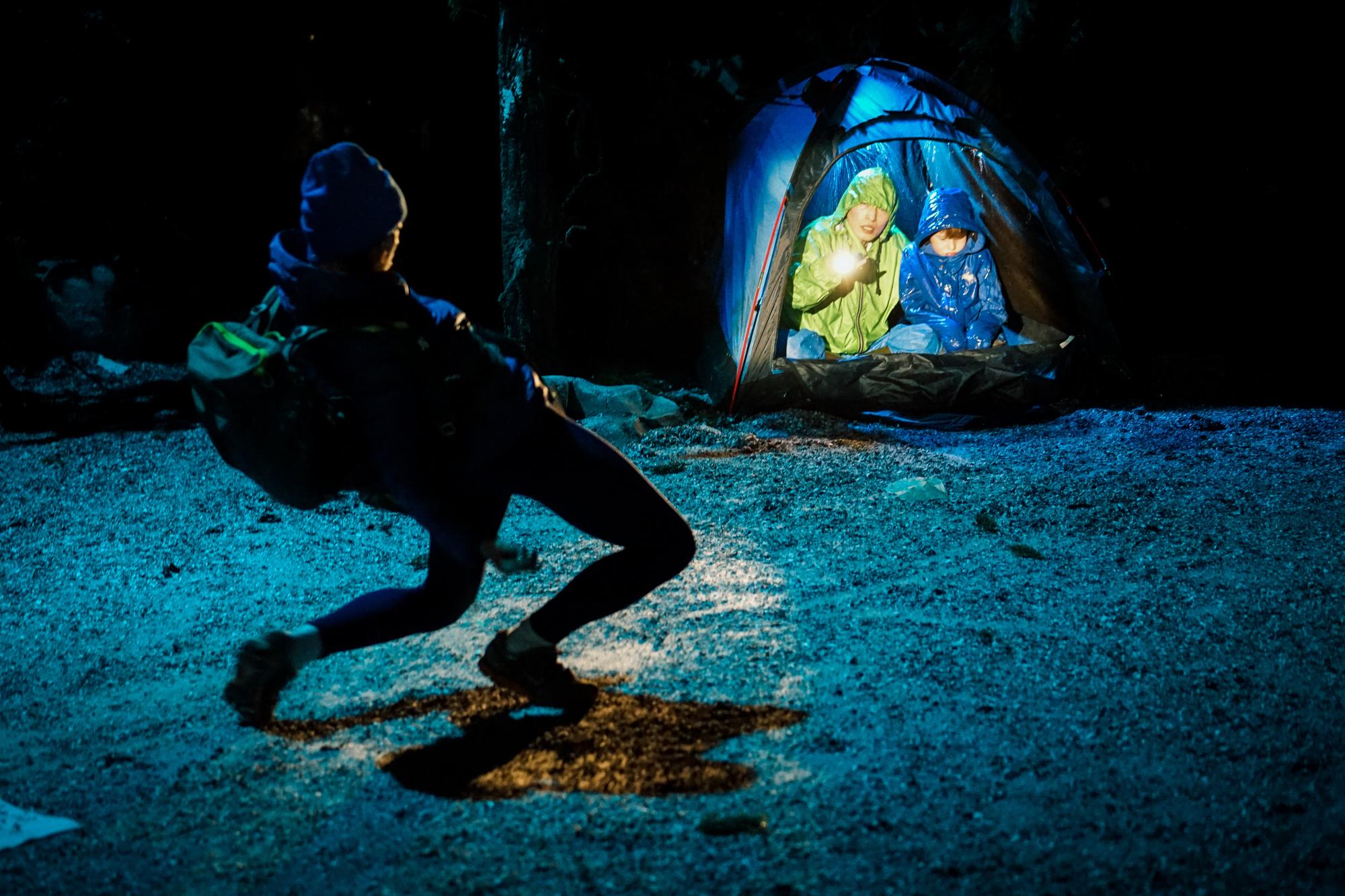By Inês Carvalho.
The Belgian dance theatre company Peeping Tom returned to the Barbican as part of the London International Mime Festival. Child (Kind) is the last chapter of a family trilogy, following the acclaimed pieces Mother and Father. This time, the parental framework has gone; between dance and physical theatre, the Olivier Award-winners walk through the labyrinths of childhood by exploring trauma, innocence and individual perceptions of reality.
The audience is invited to an odd, cinematographic dimension as the lights go down and the stage turns into a misty forest made of pines, cliffs and surreal creatures with deer heads and woman legs. Only a group of workers are keeping a drop of reality alive. The opera singer Eurudike De Beul performs the child and invades the stage riding a little bicycle and wearing a polka dot dress. Her innocent, silly facial expressions contrast with the weirdness of the environment occupied by adults. The boundaries of time also start to disappear by the contrast of vigorous, frenetic movements and slow-motion steps.
A forest guard kills a walker and teaches the girl how to use the gun – no foreigners are allowed in this parallel universe. By the sound of the shots, the body jumps in convulsions but soon gets forgotten during an incessant kissing scene between the guard and a yellow-dressed woman. Violence and death have no apparent impact on the child; instead, she imitates the romantic scene as an absurd search for identity. A feeling of disquiet emerges after a real child appears on stage. The guard wants to kill her family. The desperate mother gives her a flashlight and indicates how to get away from that bizarre and dangerous place. No kid should be there.
Child lights up the darkest corners of the unconscious mind. This is a place filled with: men who come out from eggs, flashes of abuse and even the maternal act of breastfeeding a baby tree. The succession of surprising moments caught us in this place where innocence was left behind. Peeping Town created this forest where we all can easily get lost in. Strongly connected with the Freudian Theory of Personality, the piece highlights how traumatic experiences at an early age can determine our adult personality, how to deal with ourselves – consciously or unconsciously – and how complex it is to understand reality when we are growing.
Image: Olympe Tits.
